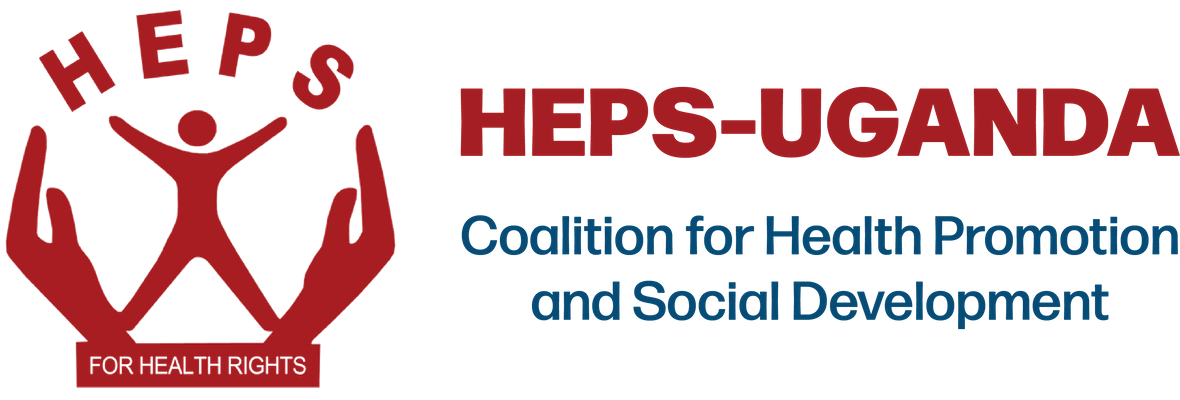We are gearing up for a momentous national budget in just a few weeks. It is an election year, coming with unprecedented dynamics. Beyond the routine of general elections, it is a year for all of us to respond to foreign aid cuts. Parliament must approve the 2025/26 national budget by the 31st of May – just days away – in compliance with the Public Finance Management Act.
The Minister of Finance will deliver to Parliament the draft National Budget for the 2025/26 Financial Year on Thursday, the 12th of June. HEPS-Uganda@25 strongly appeals to all decision-making individuals and institutions to use this opportunity to ensure the Government of Uganda takes leadership and responsibility for the health of Ugandans by decisively addressing the health funding crisis, which the sudden withdrawal of U.S. funding has exacerbated.
The U.S. foreign aid cut has severely impacted critical health programs, including HIV/AIDS treatment, malaria control, tuberculosis management, human resources for health, laboratory systems, and healthcare waste management, among others.
While budgetary allocations to the health sector have increased in nominal and absolute terms over the years, reaching UGX 4.053 trillion in 2023/24, it has continued to fall short of the recommended 5% of the gross national product (GDP) in real and per capita terms. GDP represents the value of what the country and its people produce per year.
In the 2023/24 Financial Year, public health funding was estimated to constitute only 2% of GDP, less than one half of the recommended level. It should be noted that Universal Health Coverage (UHC) can only be achieved in the least developed countries if public health financing is equivalent to, or above, 5% of GDP, according to the World Health Organization (WHO). 577283
The Budget Framework Paper for the 2025/26 Financial Year has an indicative budgetary allocation UGX 5.7 trillion to the health sector, but the health budget for the same financial year is expected to have a shortfall of UGX 1.776 trillion, partly due to U.S. foreign aid cuts, but also due to population growth and a history of underfunding.
Globally, it has been noted that UHC, which is the target of the 2030 global Sustainable Development Agenda (SDGs), will be difficult to achieve if budgetary health financing is less than 5% of the country’s GDP. The projected budget for the health sector for FY 2025/25 is about 6.1% of the national budget, and far below the 15% target set by the Abuja Declaration.
The World Bank estimates that every year, nearly one million Ugandans are pushed into poverty due to the high and unaffordable cost of healthcare. While government hospitals provide free care, patients are often required to seek private diagnostic facilities, medicines, attendance and care, referral transfers, ambulance services, specialized advice, and even stationery! Worse, the professionals are abusing the vulnerability of patients.
In Uganda’s political speech, everything is a “priority” and where a budget is not allocated is an “unfunded priority”. As such, the unfunded, underfunded, or ignored “priorities” in health are many: from essential medicines and health supplies (EMHS), to basic health infrastructure, infection prevention and control systems, diagnostic capacities, human resources, emergency preparedness and response systems, community outreach and support systems, and others. Poor management of waste is spreading drug-resistant pathogens in the healthcare, community, animal, and environmental spheres.
Listening to stories and experiences from our community and stakeholder engagements, it is difficult to fathom the continued indifference from our leaders. Healthcare services and commodities that are unavailable in the public sector are not affordable in the private sector. It is a pity.
Even when Parliament recently passed a supplementary budget towards the 2024/25 financial year, against the backdrop of U.S. foreign aid cuts that reduced health investments in Uganda by up to UGX 604 billion, the portion that went to health was a mere 1%. Out of a total of UGX 4.86 trillion, only UGX 38.6 billion went to the Ministry of Health (0.008%!), while the Ministry of Finance allocated itself UGX 88.8 billion and the Office of the President a whooping UGX 396 billion!
Uganda’s and the global health technical advisor, the WHO, whose own funding has shrunk from the same tormentor, has urged Uganda to increase its per capita health expenditure from USD 57 to the recommended minimum of USD 86 per capita, as the country struggles with declining donor support and escalating out-of-pocket costs. This is the time to do it. It is our destiny.





